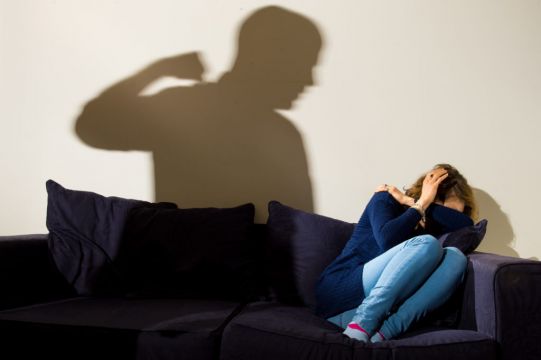Gardaí were called to an average of 130 incidents of domestic violence each day during the first quarter of 2024, according to figures published by the Department of Justice.
New crime figures reveal that gardaí responded to calls to attend the scene of a domestic violence incident on 11,675 occasions during the first three months of this year.
They indicate that 2024 is set to be a record year for the reporting of domestic violence if the same level of incidents continues for the rest of the year.
They also show that almost 5,100 breaches of orders made under the Domestic Violence Act were reported to gardaí last year, which resulted in 4,765 sets of charges or summons being issued.
In the first half of 2024, another 2,543 various breaches, including barring orders, protection orders and safety orders were recorded.
Official crime data based on the Garda PULSE system highlights the number of reports of domestic violence has more than trebled since 2014, when 14,264 incidents were logged.
The annual total has grown continuously each year over the past decade to reach a record of 46,539 incidents in 2023 – representing an average of 127.5 incidents per day.
Approximately a third of all incidents of domestic violence are recorded in Dublin.
Dublin West had the highest level of reported incidents last year across all 22 Garda divisions with 4,582 and also the highest in the first quarter of 2024 with 1,140 cases.
Dublin North has the second highest number of cases of reported domestic violence in 2023 with 4,104.
Outside the capital, the highest number of incidents of domestic abuse was in the Garda division of Louth/Cavan/Monaghan, where 3,077 cases were recorded.
The lowest number of incidents was 611 cases in the Garda division of Cork West, which also has the smallest population.
The figures indicate Limerick had the highest rate of reported incidents last year with 123.3 cases of domestic violence reported per 10,000 population, followed by Louth/Cavan/Monaghan (107.3) and Dublin (106.8), which covers six Garda divisions in the capital.
The lowest rate was recorded in the Sligo/Leitrim division with 68.2 incidents of domestic violence per 10,000 population, just ahead of Galway (69.0) and the three Garda divisions in Cork at 69.4.
Commenting on the latest figures, the Minister for Justice, Helen McEntee, welcomed that they indicated that more people who have been impacted by domestic violence have been coming forward.
Ms McEntee said combatting all forms of domestic, sexual and gender-based violence (DSGBV) remained a priority for herself, the Government and the Garda Commissioner.
The minister said the third national strategy on DSGBV, called “Zero Tolerance”, sets out an ambitious whole of government five-year programme of reform to achieve a society which does not accept such violence or the attitudes which underpin such crimes.
She said the strategy also has a significant focus on improving the system for victims of terrible crimes and ensuring there was a full range of supports and services available nationwide to empower victims and survivors.
In response to parliamentary questions from Aontú leader, Peadar Tóibín and Labour leader, Ivana Bacik, the minister claimed a significant objective has been to encourage victims of domestic violence to come forward and to report that crimes are being committed against them.
“This is an important step because, historically, there has been an underreporting of domestic, sexual and gender-based violence,” said Ms McEntee.
The minister said in excess of €7.9 million has been allocated in funding to combating DSGBV in Budget 2024, while the new agency established to oversee the issue, Cuan, has an annual budget of €59 million this year.
She pointed out that there is also now a Protective Services Unit in each Garda division with specialist teams to engage with vulnerable victims.
Ms McEntee said she had also recently strengthened the law to combat all forms of DSGBV by introducing new standalone offences of stalking and non-fatal strangulation and by doubling the maximum sentence for assault causing harm – the most common offence in domestic violence cases – to 10 years.
If you have been affected by any of the issues raised in this article, you can contact Women’s Aid (24-hour freephone helpline at 1800-341 900, email helpline@womensaid.ie) or Men’s Aid Ireland (confidential helpline at 01-554 3811, email hello@mensaid.ie) for support and information.
Safe Ireland also offers a number of local services and helplines at safeireland.ie/get-help/where-to-find-help/. In the case of an emergency, always dial 999/112.







